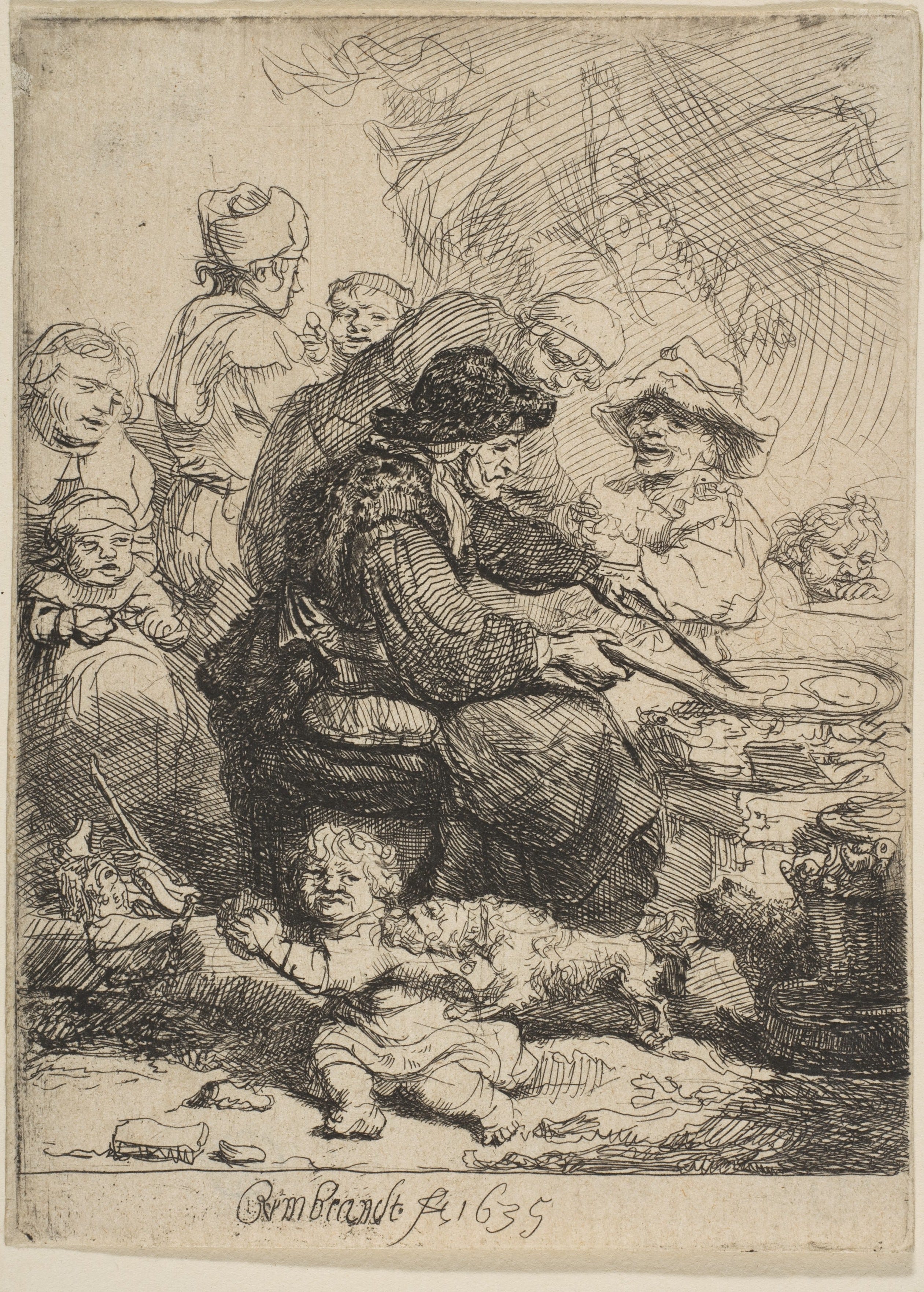
Writing News
My translation of “Ibn Abd al-Aziz Sacrifices A Jewel,” which is from Bustan, by Saadi of Shiraz was publised recently in The Loch Raven Review. (The link will take you to the section of the issue devoted to Persian literature, but you need to scroll down three poems to come to mine.) The poem speaks to our current moment in a variety of ways, I think, but most clearly in terms of the ever growing wealth disparities in this country and around the world. This is the poem’s final couplet:
Those who value virtue will never buy
with others’ pain and sorrow their own joy.
Four Things To Read
Bernie Would Have Won, by Krystal Ball:
“The bottom line is this: Democrats are still trying to run a neoliberal campaign in a post-neoliberal era. In other words, 2016 Bernie was right.”
I’ve stopped reading and listening to most of the analyses purporting to explain the scale of Kamala Harris’ loss to Donald Trump in the presidential election, not because I think they are wrong, but because they often seem more interested in whatever stake they have in their specific explanation then in whether or not the explanation itself moves forward the larger conversation that clearly needs to happen. (John Stewart did a good job of skewering this towards the end of this clip from The Daily Show.) I know I’m being somewhat reductive here, because it’s not like sexism and racism and homophobia and the Biden administration’s enabling of Israel’s decimation of Gaza and its people, along with all of the other reasons being given for why not enough people who showed up at the polls chose not to vote for Harris, are irrelevant. Nonetheless, too few people are taking seriously the argument that Ball makes in this brief essay, which is that Harris lost because the Democrats rejected back in 2016 Bernie Sanders’ class-based analysis as a viable foundation for a presidential campaign. Ball makes a distinction between Trump’s populism and Sanders’ that I think is worth thinking carefully about. Because “right-wing populism embraces capital,” she wrote, “…it posed no real threat to the monied interests that are so influential within the party structures…The Republican donor class [may not have been] thrilled with [Trump] but they did not view him as an existential threat to their class interests.” Meanwhile “Bernie’s party takeover did pose an existential threat—both to [Democratic] party elites who he openly antagonized and to the party’s big money backers. The bottom line of the Wall Street financiers and corporate titans was explicitly threatened.” That’s why, Ball asserts, “His rise would simply not be allowed. Not in 2016 and not in 2020.” That difference mattered back then and its specter haunted this election as well.
§§§
Why Do Some States Protect Women While Others Enable Abuse?, by Alice Evans:
“Sexual liberation did not guarantee female safety. Young women wanted to enjoy the night like their male peers, but it remained very much a man’s world. Rapes and murders were frequently reported across major cities. A woman who attracted attention only had herself to blame: “What was she wearing?”, “Why was she out so late?” Objectors were derided as killjoys. This tension between growing freedom and persistent danger revealed a crucial truth: women needed both the liberty to move freely and the protection of strong institutions willing to defend their rights.”
Evans goes on to demonstrate that a primary reason the violent crime rate in the United States decreased, at least prior to 2014, including violence against women, was the fact that state institutions took seriously the notion that violence against women was not acceptable. In the rest of the piece, she goes on to talk about the relationship in several places—Russia, India, China, South Korea, and Latin America—between the relative success of campaigns against gender-based violence and the stance taken by governmental institutions, not just towards women’s rights, but towards democratic society in general. She also makes the point that even in countries where progress has been real, it is not inevitable, something to pay careful attention these days as the right both intensifies its attacks on women’s rights and celebrates notions of manhood and masculinity that are part and parcel of women’s subjugation.
§§§
Whispers, by Kamal Elgizouli (translated by Adil Babakir):
It’s not murder that I dread.
Not even a tragic end.
Nor this door being blown down outright,
or them storming in at midnight,
their naked guns in full sight.
No.
Not festering wounds, streams of blood,
or the wall dotted with fragments of my skull.
What I fear the most, I have to say,
is fear per se…
I needed this poem. It is easy to give in to fear these days. Donald Trump’s election, precisely because it was enabled by so many people voting against their own long-term self-interests, arguably embodies it. The lines that hit me strongest were there: “You are destined to die—and so are they./No one is exempt.” I’d prefer to let the poem speak for itself. I hope you will take a few minutes to read it.
§§§
‘Verbally Assaulted’ After ‘Shut It Down’ Reversal, U. of Michigan Student-Government Reps Demand Leaders Resign, by Katherine Mangan:
“The vote to restore funding, on October 8, had been a direct rebuke to the president of the Central Student Government, Alifa Chowdhury, who had carried through on an unusual campaign promise. She and the vice president, Elias Atkinson, were elected along with two dozen other representatives, on a platform called “Shut It Down.” It promised to deny funding to student groups unless and until regents agreed to their demands that they divest the university’s endowment from companies with economic ties to Israel. Similar demands have been at the center of nationwide campus protests over the Israel-Hamas war since last spring.”
This article, along with another one published in The Chronicle of Higher Education, “U. of Michigan Student Government Impeaches President, VP for ‘Inciting Violence’ Over Student-Fee Dispute,” also by Katherine Mangan follow up on something I shared with you back in Issue 26: “At Michigan, Activists Take Over and Shut Down Student Government.” I wrote then that I was fascinated by the then-newly elected student government’s tactic of holding student-club money hostage until the school divested from all Israel-related investments, not least because of the way it seemed to echo the strategy used in this country by the right to gain control of local government in order to push its ideological agenda. I wanted to share these follow-up articles with you.
Thanks for reading It All Connects...! Subscribe for free to receive new posts and support my work.
Four Things To See
All images are from the Metropolitan Museum of Art and are in the public domain.
Cupid with Two Doves
Artist: Toussaint Dubreuil (French, Paris ca. 1561–1602 Paris)

§§§
The Pancake Woman, 1635
Rembrandt (Rembrandt van Rijn) (Dutch, Leiden 1606–1669 Amsterdam)

§§§
Turtle Pendant
Costa Rica, 10th–16th century, from the Chiriqui culture

§§§
Design for Wagon, no. 887b
Manufacturer: Brewster & Co. (American, New York), ca. 1860, by William J. Rensler (artist) American, 1891 - 1946. Of all American carriage manufacturers, none was as highly regarded for design, finish and quality as Brewster & Company. They won many awards for outstanding workmanship, including the Legion d’Honneur (Legion of Honor) at the 1878 Paris Exposition (3rd World’s Fair). In appreciation for this achievement the Carriage Builders’ National Association presented them with a gold enameled Tiffany & Company plaque and autograph book signed by leading American carriage builders, both now at the Metropolitan Museum of Art.

Four Things To Listen To
Dream On - Postmodern Jukebox (Aerosmith Cover)
§§§
Enrico Pieranunzi - Un sueño más (feat. Marc Johnson,Paul McCandless)
§§§
Stayin' Alive - Postmodern Jukebox (The Bee Gees Cover)
§§§
The Roches - Hallelujah Chorus
Four Things About Me
I held two jobs after I dropped out of Syracuse University's Creative Writing MA program, each of which I have written about before. First, I was a Jewish Campus Professional for B'nai Brith Hillel/JACY, advising two Hillel groups on two different campuses. I left that job because my girlfriend at the time was not Jewish and I did not feel right promoting the organization's position against interfaith dating when I was actively violating it. (Interestingly, the woman who first got me into Jewish community work tried to persuade me that it would be okay for me to do that. She thought the value I brought to the community outweighed the fact that I was violating one of its most basic tenets.) Second, I worked as a writer for a competitive intelligence business, producing a database for CEOs to use in making strategic technology decisions for their businesses. I left that job because I realized I was not interested in working in a corporate environment and that, despite how unhappy I’d been teaching freshman composition as a Teaching Assistant at Syracuse, I really did want to teach. So, in 1986, I decided to pursue the linguistics half of my undergraduate double major—the other half was English—but instead of studying to be a linguist, I decided to get my MA in Teaching English to Speakers of Other Languages (TESOL).
§§§
I knew I wanted to teach college, but back then just about every ad for a higher ed ESL instructor that I saw asked, in addition to the degree I’d just earned, for a year’s experience teaching abroad. Those programs wanted their faculty to have experienced at least a little bit of what it’s like to live in a country where you don’t speak the language, which I still think is a worthwhile requirement for someone who wants to teach ESL. Anyway, that’s how I ended up at the English Training Center in Seoul, South Korea. I actually applied for positions in a host of other places around the world, but I landed the job I did—in Yeoksam-dong, right outside the subway station—because I answered an ad in *The New York Times* placed by the aunt of the guy who ran the school. She worked at the Museum of Natural History and I remember that she interviewed me in her office. At the time, I knew nothing about Korea except that there had been a war there, that the United States had army bases in South Korea, and that the hit TV show M\*A\*S*H was a satire that used the Korean War to make statements about the insanity of war in general.
§§§
After I finished my MA, before I went to Korea, I taught advanced ESL composition as an adjunct at a four year college not far from where I lived. One of my most vivid memories from what time is of one of my colleagues coming to me with the paper of a student whose writing, in her view, was so removed from anything resembling reality that the only possible explanation was that the student was psychotic. (She was, I have to stress, not being ironic in the least. She truly believed the student must have been having a psychotic break when he wrote the essay.) She gave me the paper to read more as a curiosity than anything else, but I realized as soon as I started reading that the features of the paper that my colleague thought represented a break with reality were in fact quite common errors committed by speakers of Vietnamese when they first began to write in English. Clearly, the student has been misplaced into a regular composition class. I don’t remember what happened when I tried to explain this to my colleague, but it was certainly not my last encounter with the kinds of biases English Department faculty could bring to ESL writing.
§§§
Nassau Community College, where I teach now, hired me soon after I came back from Korea. One of the first positions I held within my department was as ESL Placement Coordinator. Simply put, my charge was to make sure that ESL students were placed in classes appropriate to their level of writing competence and to make decisions when a student was misplaced about which class to move them to. Once, a faculty member came to me with two diagnostic essays by students he said clearly did not belong in his class. I remember very clearly what he said. “They’re Spanish speakers, you know, and you know the kinds of errors Spanish speakers make: leaving off past tense verb ending, reversing adjective-noun word order, screwing up subject-verb agreement. In my class, they’ll never pass.” I took the papers from him, but when I read them, I discovered that one of these “Spanish speakers” was in fact from Jamaica. It actually said so in her essay. The other “Spanish speaker” turned out to be from Haiti, and her essay, which was almost letter-perfect, contained a single grammatical error. She’d misused the perfect infinitive continuous. (“To have been eating,” for example.) I would like to think that things are different now—and, to be fair, I think they are better—but I still hear stories from ESL students about how professors mistreat them because they are not natively fluent in English.
You are receiving this newsletter either because you have expressed interest in my work or because you have signed up for the First Tuesdays mailing list. If you do not wish to receive it, simply click the Unsubscribe button below.
Thanks for reading It All Connects...! Subscribe for free to receive new posts and support my work.
It All Connects is for anyone who grapples with complexity—of identity, art-making, culture, or conscience—to make a difference in their own life and, potentially, in the life of their community.






Member discussion